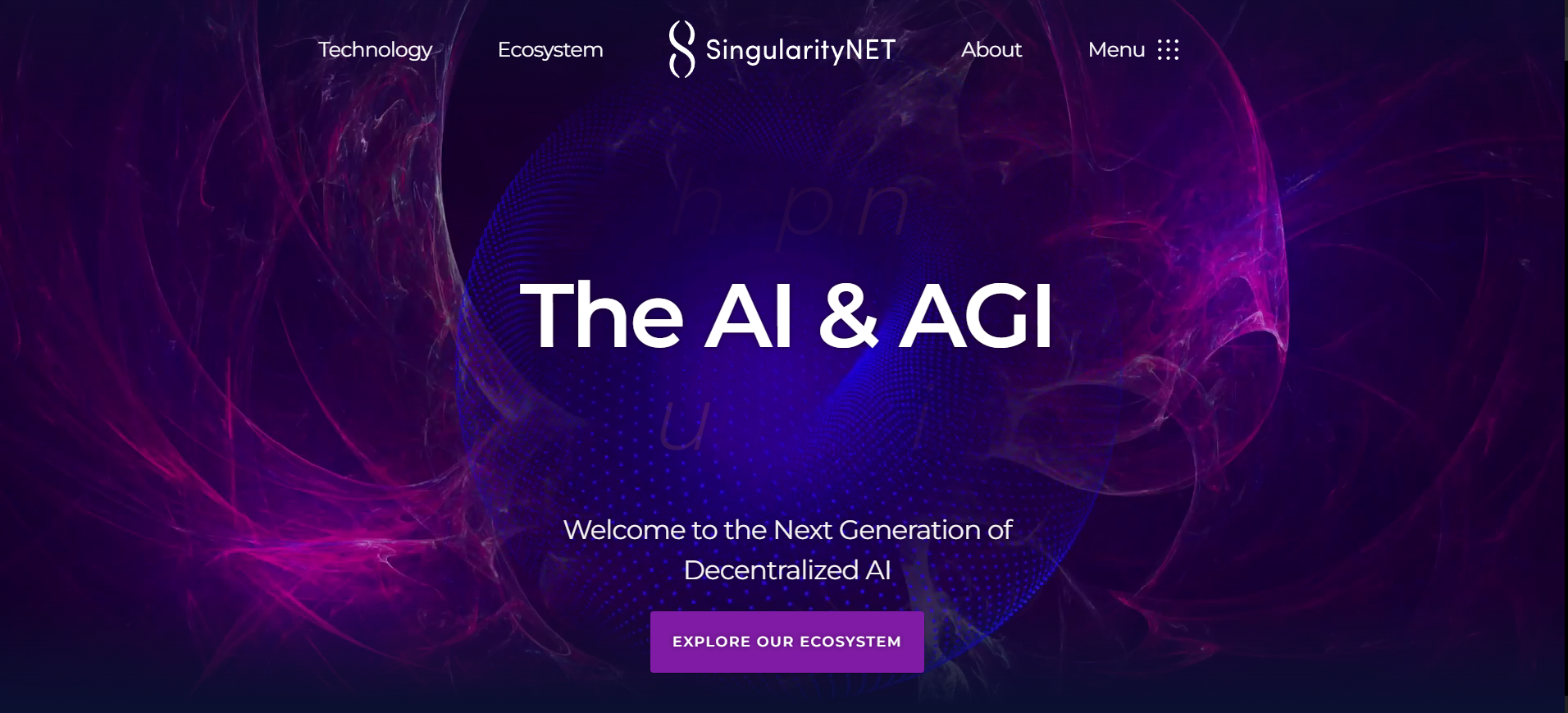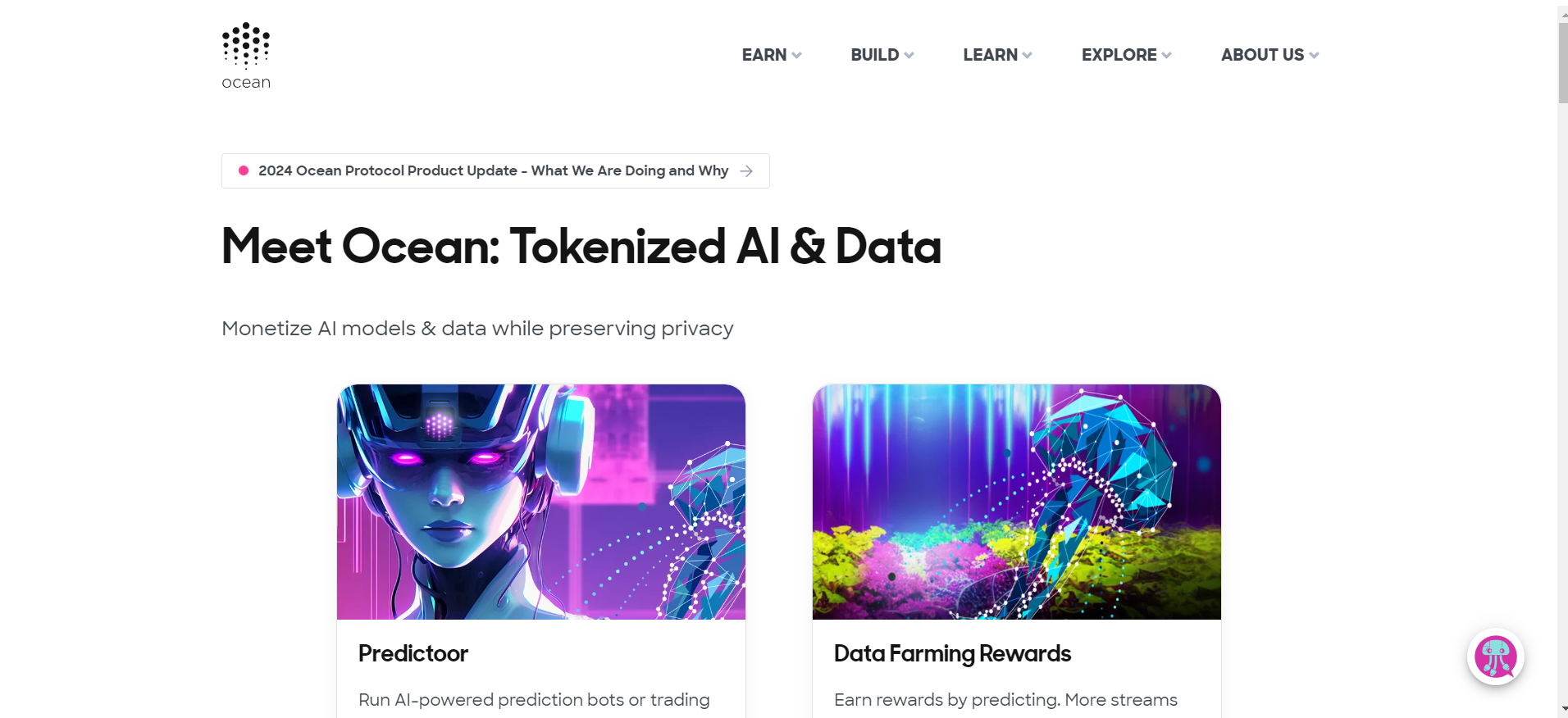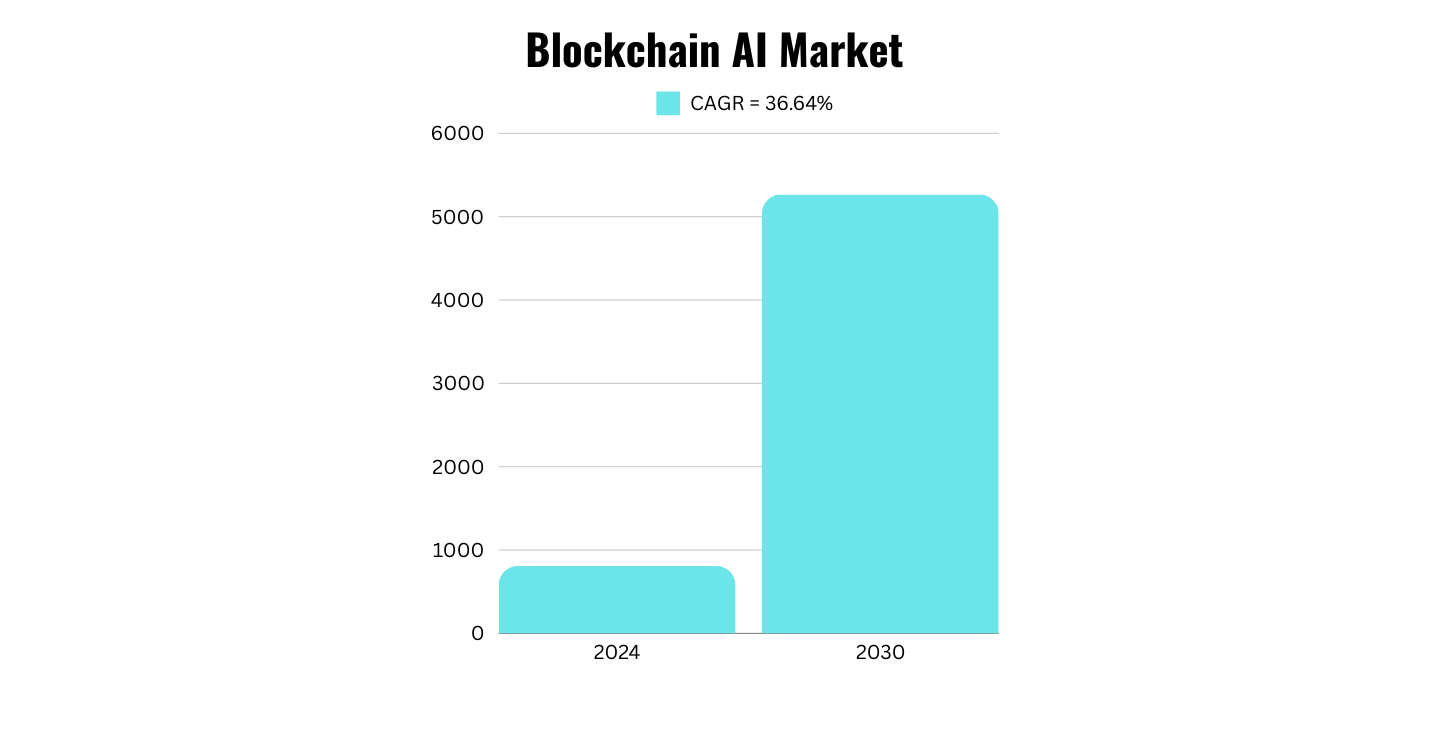Get insights.
Unlock value.
- 14-day free trial
- Set up in minutes
- No credit card required
Blockchain AI Market: Strategies for Integrating AI and Blockchain
What do you think about using AI and blockchain technology together?
Although there is a lot of hype surrounding the Blockchain AI market, this potentially revolutionary tech combination appears to be gathering ground.
Blockchain provides a secure and open database to store information, and AI can simulate how the human mind solves problems; I think this combination is interesting.
The combination of Blockchain and AI reshapes problem-solving.
Let’s learn more about the Blockchain AI market.
Grab a cup of coffee!
Blockchain
As most of you already know, Blockchain technology was first conceptualized by an anonymous person, Satoshi Nakamoto, in the year 2008.
A Blockchain is a distributed database open to anyone and maintained across multiple places over the internet.
This technology revolutionizes how data is recorded and shared, & thus contributes to protecting data against interference.
How it works?
Blockchain comprises an expanding list of records called blocks, securely linked using cryptography.
Each block contains the following
- Cryptographic hash of the previous block
- Timestamp
- Transaction data.
It is nearly impossible to alter data without altering all subsequent blocks.
This is why blockchain is inherently resistant to data fraud.
Where is it Applied?
Blockchain's most well-known application is in cryptocurrencies, like Bitcoin and Ethereum. However, the potential applications of blockchain technology extend far beyond cryptocurrencies.
Blockchain is being explored across various sectors, including
- Finance
- Retail
- Healthcare
- Supply chain
- Voting systems
Blockchain’s ability to provide permanent data makes it more attractive.
Artificial Intelligence
Artificial Intelligence (AI) creates computing systems capable of performing tasks that require human intelligence.
Capability
AI can perform many tasks, including
- Learning
- Reasoning
- Problem-solving
- Decision-making
- Forming Perception
- Understanding Language
AI uses algorithms to process data into insights.
It performs real-world tasks as simple as sorting mail to as complex as autonomous driving.
Subsets
Machine learning & Deep Learning are subsets of AI.
- Machine learning trains algorithms on data, allowing algorithms to improve and make better decisions over time.
- Deep learning solves problems using neural networks, drawing inspiration from the human brain.
Future of AI
Today, AI is used everywhere. They are applied across various industries.
Like Blockchain, AI is also used in finance, healthcare, and entertainment, enhancing efficiency for these industries.
Although AI raises important economic concerns around automation-related job replacement, it will continue to provide jobs for those who keep themselves updated with the latest technology trends.
This dynamic technology continues expanding machines' capabilities and alters how we interact with machines daily.
Strategies for Combining Blockchain & AI
 Source: Pexels
Source: Pexels
AI Marketplace
When decentralized marketplaces for NFT are possible, why not decentralized marketplaces for trading AI models?
Yes. Blockchain can facilitate the creation of decentralized marketplaces for trading AI models, ensuring transparency and fairness in transactions.
Strategies
- Develop a blockchain-based platform where individuals and organizations can buy and sell AI models and datasets securely.
- Use smart contracts to automatically execute transactions and handle licensing of AI models.
Establish Democracy
Democracy is a system where all people have equal say.
Blockchain’s decentralized approach reduces the dominance of large AI companies. It allows more contributors to participate in AI training and decision-making.
One can consider combining Blockchain & AI to attain democracy.
Strategies
- Develop AI models that operate on decentralized networks, allowing multiple stakeholders to contribute data to the training process.
- Use Smart Contracts (programmed on Blockchain) to automate and enforce the rules for participation in AI model training.
Security of data
Data is paramount. Securing data is a critical process for any business.
Blockchain can enhance AI by providing a secure and immutable data record for training AI models.
This integration can help in scenarios where data authenticity is critical, such as in healthcare or financial services.
Strategies
- Implement Blockchain to store and manage training data for AI models, ensuring that data cannot be altered or tampered with.
- Use Blockchain to create a traceable record of all AI model updates, enhancing transparency.
Enhanced Efficiency
AI is very helpful in enhancing the efficiency of Blockchain transactions.
Blockchain and AI can be integrated to optimize processes within a system, enhancing efficiency and reducing costs.
Strategies
- Use AI to manage and optimize Blockchain operations, such as transaction validation, to increase efficiency and reduce delay.
- Deploy AI algorithms to adjust blockchain parameters like block size based on network conditions.
Adhering Compliance
Adhering to regulatory compliance laws like GDPR (General Data Protection Regulation), HIPAA (Health Insurance Portability & Accountability Act), and CCPA (California Consumer Privacy Act) is paramount for businesses to survive.
Combining AI with blockchain can help maintain compliance with the above regulatory requirements through transparent verifying processes.
Strategies
- Use Blockchain to log and verify AI actions and decisions in a way compliant with regulatory frameworks.
- Implement AI-driven analytics to monitor and ensure compliance across Blockchain transactions.
Real World Use-cases
A Marketplace for AI models → SingularityNET
SingularityNET is a decentralized AI marketplace platform designed to facilitate the development, sharing, and monetization of Artificial Intelligence (AI) services globally.

Founded by Dr. Ben Goertzel, it aims to foster a network where anyone can access and deploy AI algorithms, tools, and services.
SingularityNET leverages Blockchain technology to ensure a democratic ecosystem, enabling
- Developers to sell their AI models & services
- Users to access a wide range of AI capabilities.
A Blockchain Auditing Firm → Certik
CertiK is a leading firm in blockchain security, specializing in the auditing of smart contracts and Blockchain protocols.

Founded in 2018 by professors from Columbia and Yale, CertiK leverages advanced technology, such as Artificial Intelligence, to enhance the security of Blockchain projects.
A Decentralized Data Exchange Platform → OceanProtocol
Ocean Protocol is an innovative decentralized data exchange platform that facilitates the secure and efficient sharing, monetization, and consumption of data.

It's built on blockchain technology, enabling data providers to tokenize their data into 'datatokens' which can be bought and sold to access the data.
This mechanism empowers data providers to maintain control over their data while still making it accessible for data-driven AI applications.
Advantages of Blockchain/AI Integration
Stops Fraudulent Activity
AI algorithms support Blockchain security.
AI algorithms use sophisticated pattern recognition to identify irregularity and stop fraudulent activity on Blockchain.
Thus AI safeguards sensitive data stored on the blockchain and guarantees secure transaction.
Increased Intelligence
Smart Contracts are programmed codes executed over the Blockchain.
Do you know AI is capable of increasing the intelligence of Smart Contracts?
With the help of AI, Smart contracts may automatically carry out activities based on real-time data. This increases efficiency and decreases conflicts within Smart Contracts.
Thanks to AI for making Smart contracts more intelligent and flexible than ever before.
Scalable Transactions
It is common for Blockchain to encounter network congestion due to large volume of transactions the network. This results in serious scaling issues.
AI driven solutions can maximize network performance and solves Blockchain scaling issues.
AI automatically modifies settings to meet growing transaction volumes, guaranteeing seamless transactions at scale.
Improved Decisions
AI-incorporated Blockchain networks paves way for improved decision-making in its decentralized setting.
This allows for nodes to independently decide based on AI guidelines.
Thus combination of Blockchain & AI promotes fair decision making within the system.
Increased Trust
Blockchain provides a transparent record of transactions, which can be verified by all parties involved without the need for a central authority.
When AI is applied to the Blockchain data, it can enhance trust among users by ensuring that the information processed is accurate and the insights derived are based on verifiable data.
Challenges of Blockchain/AI Integration
Interoperability
Blockchain protocols and various AI models cannot always exchange or easily transmit data.
Just because Blockchain is a relatively new technology, its integration with existing AI systems requires detailed knowledge of both fields.
Integrating blockchain with AI without compromising security is a complex technical challenge.
To fully realize the promise of AI and blockchain, compatibility between the two platforms must be ensured.
Mitigation: Smoother integration between these 2 technologies can be achieved by bridging this gap through the standardization of interfaces and protocols.
Energy Consumption
Both blockchain and AI are known for their substantial energy consumption.
Blockchain networks, especially those using proof-of-work consensus mechanisms, consume large amounts of energy. Similarly, training AI models can require significant computational resources.
Combining the two could lead to even higher energy use, making it environmentally and economically unsustainable without innovations to reduce their energy footprint.
Mitigation: Reduced usage of resources is suggested during testing phase. Careful & balanced usage of resources is suggested in the live environment.
Bias in Algorithms
Biases included in the data used to train AI systems can affect the algorithm.
These biases can provide unfair or biased results when combined with blockchain, weakening the system’s openness and reliability.
Mitigation: To properly address algorithmic biases, careful thought and mitigation techniques are required.
Regulatory Compliance
Although adhering to regulation can be a strategy to combine Blockchain & AI, it can also be a challenge sometimes.
The deployment of blockchain and AI technologies involves navigating a complex landscape of regulatory and ethical issues. It becomes critical to abide by banking rules, data protection laws, and other legal frameworks.
For example, decisions made by AI systems can be difficult to audit or explain, which may conflict with the transparency that blockchain aims to provide.
Moreover, regulatory frameworks for both AI and blockchain are still evolving, which can create uncertainty for businesses and developers.
Mitigation: It takes careful balance to create AI-driven blockchain solutions that respect legal standards without sacrificing innovation.
Cost Implications
The costs associated with deploying and maintaining blockchain and AI technologies can be prohibitive, especially for smaller organizations.
The infrastructure needed to support both technologies is costly, and the expertise required to develop and manage these systems adds to the overall expense.
Mitigation: There is a need to create applications progressively so that expenses at each stage of development is covered through investments.
Where is the Blockchain AI market heading towards?
The current state of the blockchain AI market is experiencing robust growth, with significant advancements and expansions across various industries and an increased audience.
In 2024, the market is projected to reach a value of approximately $808.13 million, growing at a compound annual growth rate (CAGR) of 36.64% to potentially achieve around $5,365.92 million by 2030.

Source: Research And Markets
This growth is driven by the increasing adoption of blockchain and AI technologies in sectors like supply chain management, financial services, healthcare, and more.
Regionally, North America is leading the market, driven by supportive government policies and the presence of key industry players.
The Asia-Pacific region is also showing rapid adoption and development, particularly in countries like Singapore, Japan, and Australia, which are implementing regulatory frameworks conducive to technological innovation.
Innovations such as blockchain-driven data marketplaces and the integration of AI with blockchain to manage extensive databases are prominent trends that are propelling the market forward.
This dynamic growth suggests a promising future for the integration of blockchain and AI, with ongoing advancements likely to open up new opportunities for innovation and efficiency across multiple industries.
Conclusion
In conclusion, the integration of Blockchain and AI holds immense potential for transforming various sectors, from finance to healthcare.
As these technologies continue to evolve, they are expected to provide solutions that enhance transparency, security, and efficiency. However, challenges such as interoperability, energy consumption, algorithmic bias, regulatory compliance, and cost implications need to be addressed for this integration to be successful.
As we move forward, the focus should be on resolving the above challenges and capitalizing on the opportunities offered by the convergence of Blockchain and AI.
The future of this revolutionary tech combination looks promising, with the potential to reshape industries and redefine how we interact with technology.
Blockchain AI Market: Strategies for Integrating AI and Blockchain FAQ
What is Blockchain AI Market?
The Blockchain AI market refers to the intersection of artificial intelligence and blockchain technology in various industries.
Why is integrating AI and blockchain important?
Integrating AI and blockchain can enhance security, transparency, and efficiency in various processes.
How can businesses implement AI and blockchain strategies?
Businesses can implement AI and blockchain strategies by partnering with tech experts, investing in training, and staying updated on the latest trends.
What benefits can businesses expect from integrating AI and blockchain?
Businesses can expect benefits such as improved data security, streamlined processes, and enhanced customer trust.
How can businesses ensure the success of their AI and blockchain integration?
Businesses can ensure success by conducting thorough research, seeking expert advice, and continuously monitoring and adjusting their strategies.
Get insights.
Unlock value.
- 14-day free trial
- Set up in minutes
- No credit card required
